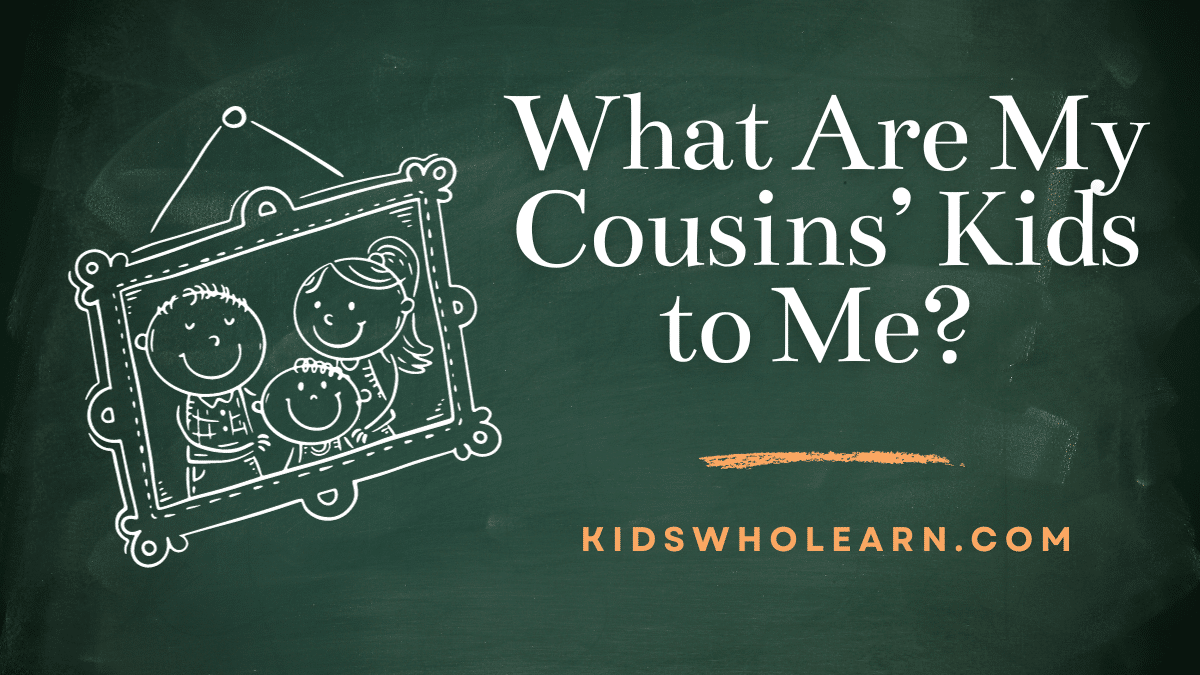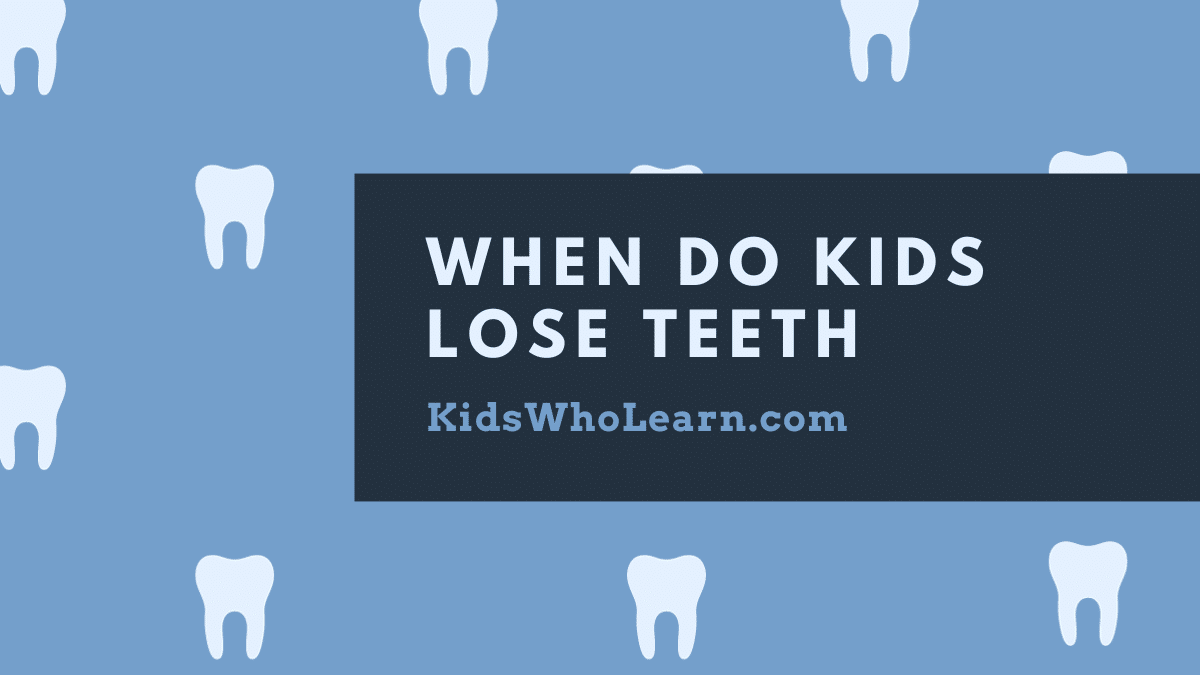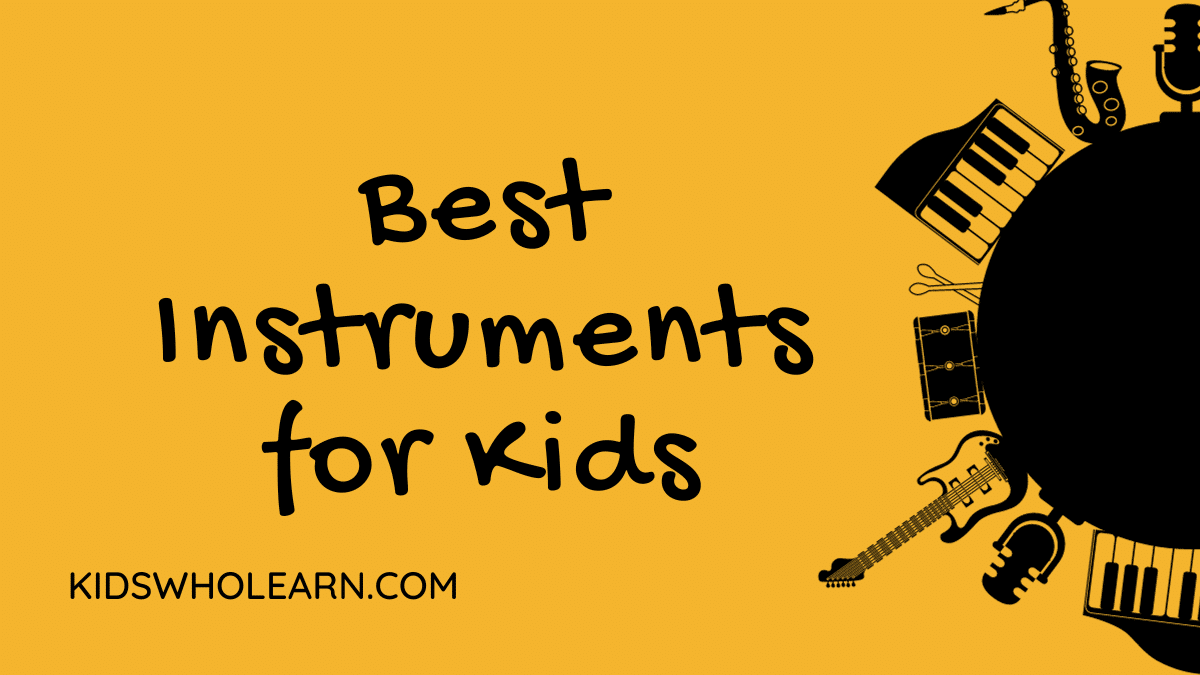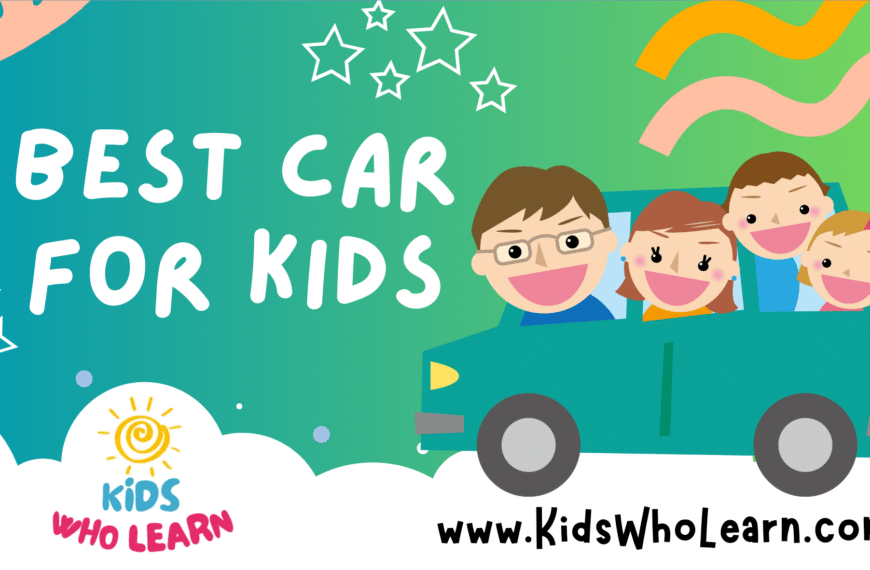If you have a large extended family, it can be tough to keep track of all the different relationships. One question that often comes up is, “What are my cousins’ kids to me?” The answer can be a bit confusing, but once you understand the family tree, it’s pretty straightforward.
Your cousin’s kids are your first cousins once removed. This means that they are one generation removed from your first cousins, who are the children of your aunt or uncle. So, your cousin’s child is your first cousin once removed.
Understanding cousin relationships can be helpful when it comes to genealogy and tracing your family tree. It can also help you understand different cultural traditions and customs related to cousin relationships. In this article, we’ll explore the different types of cousin relationships and answer some common questions.
Key Takeaways
- Your cousin’s kids are your first cousins once removed.
- Understanding cousin relationships can be helpful for genealogy and cultural understanding.
- This article will explore different types of cousin relationships and answer common questions.
Understanding Cousins
Cousins are relatives who share a bloodline but are not siblings. They are the children of your parents’ siblings or your grandparents’ children. Cousins can be some of the closest relatives you have, and it’s important to understand the different types of cousins and what they mean to you.
First cousins are the children of your parents’ siblings. They share a set of grandparents with you. For example, if your mother has a sister, her children are your first cousins. First cousins are typically the closest type of cousin and often grow up together and share many family traditions and experiences.
Second cousins are the children of your parents’ first cousins. They share a set of great-grandparents with you. Second cousins are more distantly related than first cousins, but they still share a common ancestor and can be close family members.
Third cousins are the children of your parents’ second cousins. They share a set of great-great-grandparents with you. Third cousins are even more distantly related than second cousins, but they are still considered part of your extended family.
It’s important to remember that the exact relationships between cousins can vary depending on your family’s specific genealogy. Understanding the different types of cousins can help you better understand your family tree and the relationships you have with your extended family.
Your Cousin’s Kids: First Cousins Once Removed
Your cousin’s kids are your first cousins once removed. This means that they are the children of your first cousins. Your first cousins are the children of your parents’ siblings.
Although your cousin’s kids are not your direct cousins, they are still considered family. You share a common ancestor with them, which is your grandparent. Your cousin’s kids are part of your extended family, and you may have a special bond with them.
It’s important to remember that each family may have different ways of referring to their relatives. Some families may use different terms such as “second cousins” or “cousins twice removed.” However, the technical term for your cousin’s kids is first cousins once removed.
In some families, first cousins once removed may have a closer relationship than others. For example, if your cousin’s kids are close in age to you, you may have grown up together and have many shared experiences. On the other hand, if there is a significant age difference, you may not have had as much interaction with them.
Overall, your cousin’s kids are an important part of your family tree. They are your first cousins once removed, and you share a common ancestor with them. Whether you are close or not, they are still considered family.
Cousin Relationships Explained
Cousins are the children of your parents’ siblings. They are part of your extended family and can be an important part of your life. Depending on your family dynamics, your relationship with your cousins can vary.
Here are a few common types of cousin relationships:
- First Cousins: Your first cousins are the children of your parents’ siblings. You share grandparents with them.
- Second Cousins: Your second cousins are the children of your parents’ cousins. You share great-grandparents with them.
- Third Cousins: Your third cousins are the children of your parents’ second cousins. You share great-great-grandparents with them.
The more distant the cousin, the less likely you are to have a close relationship with them. However, many people still maintain relationships with their more distant cousins.
Your relationship with your cousins can be influenced by many factors, such as age, proximity, and shared interests. Some people have close relationships with their cousins and consider them to be like siblings, while others may only see their cousins at family gatherings.
Regardless of the type of relationship you have with your cousins, they are still an important part of your family. It’s always a good idea to stay in touch and maintain those connections, even if it’s just through occasional phone calls or social media updates.
Genealogical Aspects
When it comes to understanding your family tree, it’s important to know how your cousins’ children fit into the picture. Here are a few genealogical aspects to consider:
- Your cousins’ children are your first cousins once removed. This means that they are one generation removed from your own generation.
- If your cousin has more than one child, each of those children is still considered your first cousin once removed.
- Your first cousins once removed share a set of great-grandparents with you. In other words, your grandparents are their great-grandparents.
- If you have children of your own, your cousins’ children are their second cousins.
Understanding these relationships can be helpful when it comes to family history research or simply keeping track of your family tree. It’s also important to note that while these relationships may seem distant, they can still be meaningful and important connections within your family.
Cultural Differences in Cousin Relationships
In some cultures, cousin relationships are very close and important, while in others they are more distant. For example, in some Asian cultures, cousins are considered to be like siblings and are expected to have close relationships throughout their lives. In contrast, in some Western cultures, cousins may only see each other occasionally at family gatherings and not have a particularly close relationship.
Another cultural difference is the terminology used to describe cousin relationships. In English, there is only one word for cousin, regardless of the type of relationship. However, in other languages, there are different words to describe different types of cousin relationships, such as first cousin, second cousin, etc. This can lead to confusion when communicating with people from different cultures.
In addition, some cultures place more importance on maintaining relationships with extended family members, including cousins. This can involve regular communication, visits, and even financial support. In other cultures, the focus may be more on immediate family members, such as parents and siblings, and extended family relationships may not be as emphasized.
Overall, the importance and nature of cousin relationships can vary greatly depending on cultural norms and values. It is important to be aware of these differences and to approach cousin relationships with respect and understanding, regardless of cultural background.
Common Misconceptions
When it comes to family relationships, it’s easy to get confused with all the different terms and titles. One common misconception is that your cousin’s children are your “second cousins.” However, this is not entirely accurate.
In fact, your cousin’s children are your “first cousins once removed.” This means that they are one generation away from being your first cousin, and they are removed by one generation. For example, if your cousin’s child is your first cousin once removed, then their child would be your first cousin twice removed.
Another common misconception is that your cousin’s children are your “nieces” or “nephews.” However, this is also incorrect. Your nieces and nephews are the children of your siblings, not your cousins.
It’s important to understand these distinctions, especially when it comes to family gatherings and events. Using the correct terminology can help avoid confusion and misunderstandings.
To summarize, your cousin’s children are your first cousins once removed, not second cousins or nieces/nephews. Remembering these distinctions can help you navigate family relationships with ease.
Conclusion
In conclusion, your cousin’s kids are most likely your first cousins once removed. This means that they are the children of your first cousins. Although they are not your direct cousins, they are still considered family and can be an important part of your life.
It’s important to maintain a good relationship with your cousin’s kids, as they can provide a unique perspective on life and can be a great source of support and encouragement. Whether you see them frequently or only occasionally, it’s important to stay in touch and keep up with their lives.
Remember that family is an important part of life, and your cousin’s kids are no exception. Cherish the time you spend with them and make an effort to stay connected. Who knows, they may even become some of your closest friends in the future.
In summary, your cousin’s kids are a valuable part of your family, and it’s important to maintain a good relationship with them. Whether you’re sharing stories, offering advice, or just spending time together, make sure to appreciate the unique bond that you share.
Frequently Asked Questions
What is the relationship between my cousin’s child and me?
Your cousin’s child is your first cousin once removed. This means that they are one generation younger than your first cousin.
What is my dad’s cousin’s child to me?
Your dad’s cousin’s child is your second cousin. This means that they are the child of your parent’s cousin.
If my cousin has a child, am I considered an uncle?
No, you are not considered an uncle. You are still the child of your cousin’s aunt or uncle, which makes you a first cousin once removed.
Who is considered my second cousin’s child?
Your second cousin’s child is your second cousin once removed. This means that they are one generation younger than your second cousin.
What is the proper term for my cousin’s child?
The proper term for your cousin’s child is your first cousin once removed.
Are my cousin’s children considered my nephews/nieces?
No, your cousin’s children are not considered your nephews or nieces. They are your first cousins once removed.







